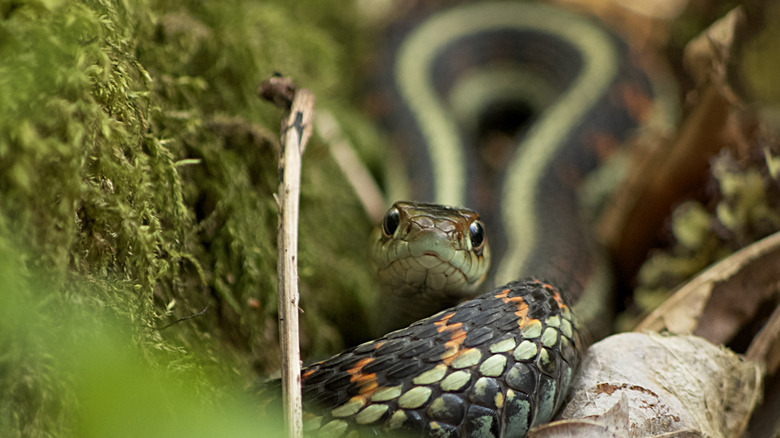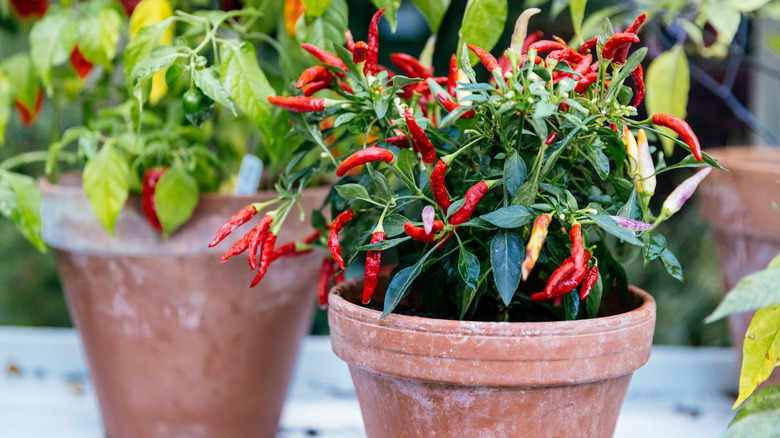Are Chili Pepper Plants Really An Effective Snake Repellent?
For many gardeners, the sight of a snake is a welcome one –- garter snakes in particular, with their taste for slugs, grubs, and small rodents, are some of nature's most effective backyard pest control experts. Some people may even take extra measures such as planting specific flowers to attract snakes. Others, however, may live in an area where venomous species are common or might just view slithering garden guests with a healthy measure of trepidation, particularly if they have pets or small children. Others still may simply be afraid of snakes.
Whatever your reasons, if you've spent any amount of time looking for information on how to keep snakes out of your flower beds and yard, you've probably encountered a staggering number of suggestions, ranging from unsubstantiated or contradictory to just plain false. One such claim you may have heard is that planting chili pepper plants will turn snakes away from your yard. Unfortunately, the efficacy of this folk remedy has yet to be proven, and it may in fact be a myth.
Do spicy peppers and other chemical snake repellents work?
The logic of using spicy peppers to drive out snakes is understandable: snakes "smell" by flicking their tongues out to deliver stimuli to the Jacobson's organ located on the roof of their mouths, so it might follow that a strong olfactory irritant like spicy peppers could discourage them. However, the chemical that gives certain members of the Capsicum family their burning sensation is capsaicin, which is primarily a deterrent to mammals. Whether or not this deters snakes -– or even affects them at all –- is unclear at best. In fact, many species of snakes may not even be wired to perceive capsaicin-based spicy sensations at all, no matter the Scoville ranking of your garden peppers.
What about other commonly touted repellents, such as creosote, predator musk or urine, or even commercially available sprays that claim to deter snakes? Apart from anecdotal accounts, these have not been conclusively shown to be effective, either according to Colorado State University Extension. It probably will not hurt your garden to try any of these purported solutions for yourself, but be sure to do careful research first to ensure that these substances will not harm your pets or any native wildlife.
Other ways to repel snakes
Like any unwanted guest, one of the most reliable ways to prevent snakes from making your yard their home is to make sure it's not appealing real estate for them in the first place. Some of the most attractive amenities for a house-hunting snake are plentiful hiding places — particularly ones that stay cool and humid in hot weather – and warm basking spots, such as stones and metal surfaces that soak up the sun's heat. Try not to leave piles of wood, garden debris, or mulch in your yard; if you must store excess firewood, make sure to put it on a high table or platform at least 12 inches off the ground or, if possible, keep it indoors.
Keep in mind that many snakes might wander into your yard looking for food, so keeping their food out of your yard might also encourage snakes to find somewhere else to hang out. Rats are a favored prey of many snake species, and there are plenty of ways to keep rats out of your garden with kitchen ingredients — capsaicin may not necessarily work on snakes, but it might irritate any rats or mice sniffing around! However, if you still have a real snake problem, your best bet is to contact a professional.


